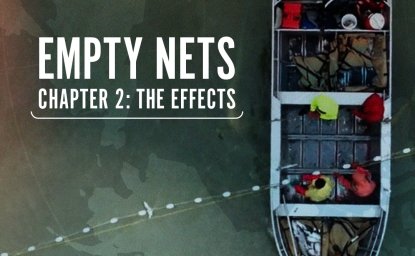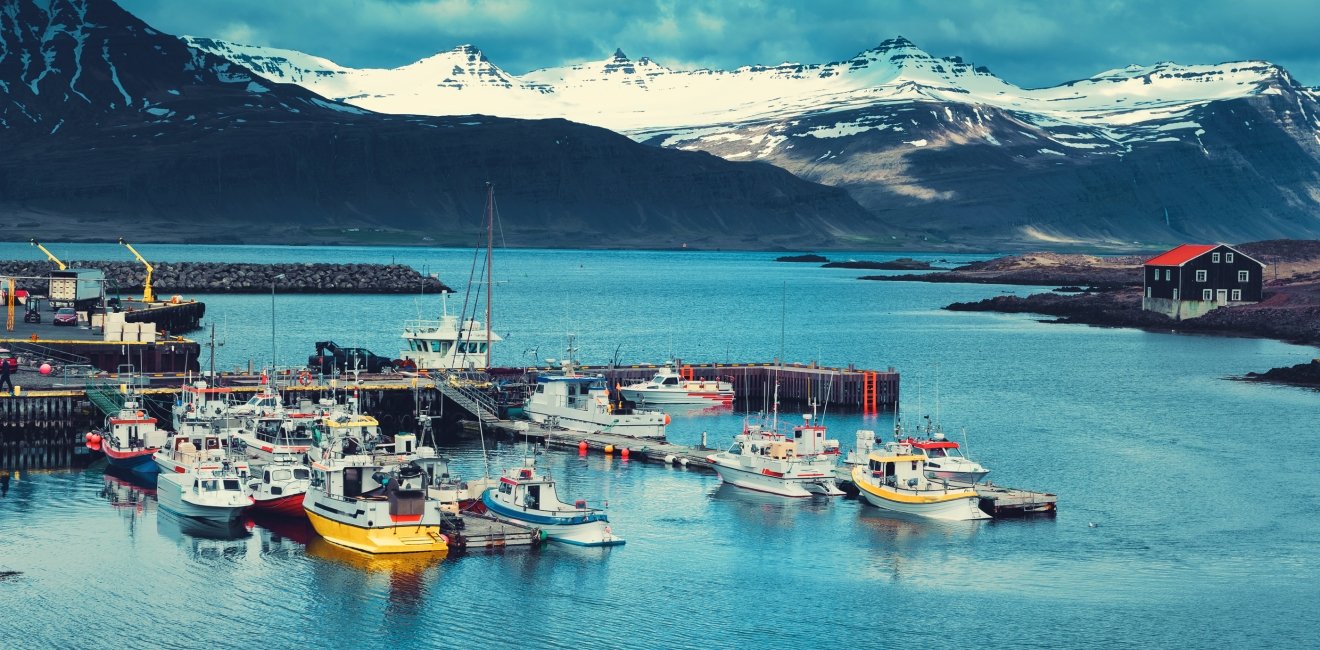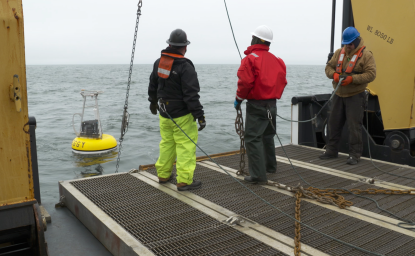The rise to prominence of the concept of the Blue Economy throughout the past decade has led to development of numerous economic development opportunities that sustain and grow the triple bottom-line principles of people, planet, and profit in the marine environment. As technology has developed, and new markets have emerged, opportunities to develop new ocean-based industries, adapt existing marine dependent operations, and find new uses for products and byproducts of mature industries to provide additional efficiency and capital are expanding rapidly, particularly for communities looking to pivot away from unsustainable past practices and launch the industries of the future.
One tool that has taken root and is beginning to show significant results and return on investment is development of hubs of operation and entrepreneurship, known as innovation clusters. While the mythology of successful economic development often centers around individual genius creators, there is an emerging school of thought, and increasingly of practice, that recognizes the value of multiple innovators with similar, often complimentary ideas, who operate in close geographical and ideological proximity and as a result end up creating a whole that is greater than the sum of its individual parts. This cluster model has emerged as a center of innovation and entrepreneurship in the Blue Economy, initially in Europe, and now increasingly in North America and around the world.
The result, so-called ocean clusters or BlueTech clusters, have begun to serve marine and maritime dependent businesses and innovators. These organizations can be fundamental to growing regional and national Blue Economies and spurring international collaboration. However, at present there is a lack of capacity to monitor, quantify, and communicate the economic benefits that have accrued from these partnerships that can, if documented, drive even greater collaboration and innovation.
This paper will explore the definition of what constitutes an ocean cluster, provide examples of Transatlantic collaboration among cluster organizations with a particular focus on the relationship between Iceland and New England, and identify opportunities for additional research and greater investment in this emerging, dynamic sector.
Several products released in early 2021 with the support of The Ocean Foundation provided a detailed overview of the development of Ocean or BlueTech Clusters. The first of these, The Blue Wave: Investing in BlueTech Clusters to Maintain Leadership and Promote Economic Growth and Job Creation, written in partnership with The Maritime Alliance, details the economic rationale for greater government investment to spur the innovation they inspire. This work led to two storymap pieces. The first details BlueTech Clusters of America, an overview of regions in which this cluster model has begun to take root, the particular methodologies of each, and a comparative overview of regional growth and opportunity in the Blue Economy. The second expanded this reach to define and compare BlueTech Clusters in the Northern Arc of the Atlantic, including descriptions of how different models have grown in mainland Europe, Iceland, Canada, and the United States.
There is no single accepted definition of an ocean cluster, and many models have emerged in different regions of North America and Europe which will be the geographic focus of this review. Most, but not all, include an element of sustainability in their work, and support the World Bank definition of the Blue Economy as “the sustainable use of ocean resources for economic growth, improved livelihoods, and jobs, while preserving the health of the ocean ecosystem.” Others are open to entities that do not limit themselves to a sustainability focus. Some clusters broaden their definition of the Blue Economy to include freshwater as well as ocean-focused industries. Many have physical infrastructure of some kind whether it be shared collaborative office space or workshop locations, while others are exclusively virtual networks. Most are organized as non-profit entities, though some also have for-profit arms, while still others are exclusively for-profit ventures. Each of these models has its own benefits and costs.
The storymap focused on the Northern Arc of the Atlantic, defines a BlueTech Cluster as “a specific type of cluster organization focusing on innovation, research, and business development in ocean-related industries. They work to bring together stakeholders from across the triple-helix comprised of 1) academia and education; 2) business and industry; and 3) government and policymakers… serv[ing] as hubs of innovation for development.” What they all share, regardless of organizational structure, subject matter focus, or membership, is a desire to innovate and the recognition that there is great opportunity in co-location and collaboration.
In Europe, multiple examples demonstrate how Blue Economy development has led to transboundary partnership. One example of this work comes from the Nordic countries of Denmark, Finland, Iceland, Norway, and Sweden. In 2019, the leaders of these nations adopted an agreement known as Vision 2030 with the aim to “make the Nordic Region the most sustainable and integrated region in the world by 2030.” The economic and societal changes of the Covid-19 pandemic have only served to accelerate and deepen their commitment to this vision, and they opted to make the Sustainable Ocean Economy one of their eight primary initiatives for the first component of this work for 2021-24.
Not coincidentally, this region is also home to several early adopters of the ocean cluster model that have emerged with varying degrees of governmental support. The government of Norway in particular has made clusters a focus of economic development dating back to the first years of the 21st century with its Norwegian Innovation Clusters program, which has spawned numerous ocean-focused cluster organizations receiving differing degrees of government support with members engaged in everything from traditional topics like fisheries and aquaculture to offshore renewable energy to cybersecurity and digitization in the marine economy. Sweden and Denmark are also home to ocean cluster organizations with varying degrees of national certification and support. Similar efforts have been established in southern Europe as well, most notably in Portugal, France, Spain, and the United Kingdom.
The United States has only recently begun supporting Ocean Cluster development, pegging the Blue Economy as an area of focus for its Build to Scale grant program in 2020 that resulted in several six-figure awards being allocated to ocean clusters in Washington, Alaska, and Mississippi to support establishment and expansion, with a second round of funding announced in September 2021.
International collaboration has been baked into the BlueTech cluster model as well. The Blue Tech Cluster Alliance, launched in 2017 brings together ten organizations from eight different countries in North America and Europe, “committed to collaboration, developing joint projects, promoting each other’s member companies, and sharing information.” Its membership generally takes a broader view of the Blue Economy than the World Bank’s definition, remaining inclusive of all ocean economic activity regardless of its inherent sustainability (i.e. including offshore oil and gas production, mining, and other extractive activities) as well as freshwater-focused industries.
Meanwhile, the Iceland Ocean Cluster (IOC) has followed a different pathway to innovation in Transatlantic collaboration, particularly in partnership with the northeast United States. After launching with an initial coterie of 12 companies when the Iceland Cluster House opened its doors in 2012, it is now over 70 organizations strong. Its membership growth has been driven by the chance to work in close proximity to other start-ups in a welcoming, collaborative, environment in which all participants share the collective goal of creating new businesses with a triple bottom-line approach of valuing people, planet, and profit. It receives no government funding, and is completely self-sustaining.
This model includes a built-in foundational principle of sustainability—a true Blue Economy tenet—and has found a willing audience in the United States. Four different ocean cluster models have sprung up in the U. S. following, at least in part, the for-profit model pioneered in Iceland. These include the Alaska, New Bedford, and Long Island Sound Ocean Clusters, each of which either has additional external partners, is focused more directly on specific industries, or is based on a non-profit business model, thereby not making them true analogs of the IOC. Yet all do share a focus on sustainability and similarities in their branding elements to the IOC’s business model.
The organization most directly linked to the IOC, and thus the example of the closest relationship among clusters on the east and west coasts of the Atlantic is between the IOC and the New England Ocean Cluster (NEOC). The NEOC is based in Portland, Maine, a city which itself has developed a rapidly deepening relationship with the IOC’s hometown of Reykjavik following the establishment of Portland as the U.S. headquarters of Iceland shipping company Eimskip in 2013. According to Iceland Ocean Cluster founder, Thor Sigfusson, these partnerships allow nations to “mutually benefit each other in manifold ways, forging new opportunities even as they acquire additional strengths when competing on international markets.”
The partnership between the NEOC, founded in 2016, and the IOC has led to two elements that illustrate the power of this kind of like-minded, Transatlantic collaboration, both of which are based in the inherent—albeit difficult to measure—value of relationships and personal interaction: 1) an academic exchange program, and 2) a business development network, grounded in the value of physical infrastructure as a catalyst for partnership and innovation. This burgeoning bond between the two cities provided the fertile ground that has allowed the academic and professional exchanges to flourish, and both have led to significant successes in terms of the exchange of ideas, expertise, and ultimately economic development.
The academic exchange was initiated in 2016 when the NEOC enlisted Maine-based university leadership to build meaningful connections with academic institutions across the North Atlantic and Arctic region. The goal was to plant the seeds of an emerging, international workforce, well versed in the Blue Economy and its crossover points with the cultures and value structures of each region. Since its initiation as a binational arrangement, this program has subsequently expanded to include participation from Norway and Greenland, and U.S. universities in Connecticut and Massachusetts. NEOC and IOC now host annual graduate student gatherings at the annual Arctic Circle Assembly in Reykjavik, and largely as a result of this program, Portland has been selected to host the 2022 UArctic Assembly, the flagship event of a coalition of Arctic-based universities. Over the past five years, this program has become a point of attraction for entrepreneurs and innovators throughout the north Atlantic region who come to the organizers for undergraduate and graduate interns to assist their companies with business, legal, and regulatory compliance issues, and ultimately transition to key employees and leverage their experience to bring their understanding to start-ups and established businesses alike.
As the success of this academic exchange program illustrates, the growth of the Blue Economy is contingent on multiple actors coming together, and the development of interpersonal and inter-organizational relationships are paramount. An example of this at a professional scale comes from a multi-week event that the NEOC convened in the early days of its existence. In 2017, its leadership organized a group of Maine business development leaders for a 10-day bicycle race around Iceland, ending with a celebration of Maine culture featuring the Maine Beer Box, a shipping container delivered by Eimskip and packed with Maine-made microbrew kegs and dozens of taps pouring right out of the container itself on the Reykjavik waterfront.
The experience and the relationships it fostered, chronicled in this video, have resulted in demonstrated successes: LL Bean, one of Maine’s biggest manufacturers, has reimagined its international trade model, including opening its first United Kingdom outlet in 2019, and sales of Maine craft beer have soared in Iceland. Additional collaborations have emerged including innovative vessel navigation systems, collaboration among seafood processors and aquaculturists, and companies finding new uses for ocean-based products and by products, such as the 100% Fish Project that Sigfusson is building out of his IOC experience. Other collaborations in the works include:
- Emerging relationships between entrepreneurship organizations Startup Iceland, Icelandic Startups, and the Maine Center for Entrepreneurs;
- NEOC providing domiciling services to companies from Iceland and the Faroe Islands as they look to break into and grow sales in the U.S. marketplace, with a third company providing AI-informed vessel navigation assistance services intending to launch in the U.S. in June 2022;
- Facilitating efforts by an Icelandic company to acquire Maine lobster byproducts in 2019 to conduct research & development using their own proprietary techniques for extracting enzymes from cod byproducts. In 2022, this company will be seeking partners in the U.S. to license their technology to create a value added product from waste in Maine’s signature natural resource commodity.
Both NEOC and IOC leadership credit the success of these programs to their shared ethic as private sector operations focused on Blue Economy development. As NEOC Chief Operating Officer Chris Cary put it, “this intentional centralization of relationships allows for each organization to support people and businesses as its needs arise. The idea is that if an entrepreneur is facing a barrier, he or she can plug in, seek mentorship from other members, capacity from the universities, or the transfer of technologies/ideas from international parties.”[1]
While the benefits of both the academic exchange and the industry-led collaboration are intuitive, they have not yet been chronicled, studied, or published in traditional, peer-reviewed journals that can quantify the metrics of their success to an adequate degree. This kind of analysis and metric establishment is a vital next step for this emerging and promising economic sector. Entities such as the Center for the Blue Economy at the Middlebury Institute of International Studies could be well-equipped to take on as growth in the Blue Economy is being increasingly touted by leaders in industry, government, and the NGO sectors.
As the Blue Economy grows in both size and prominence on both sides of the Atlantic and around the globe, cluster organizations of all types are poised to accelerate this growth and facilitate a transition to the industries of a more sustainable future. As the world opens its eyes to the existential challenges of climate change and environmental degradation, demand for triple bottom-line solutions will only grow, and there is an imperative to make this pivot as quickly as possible. In this “all hands on deck” scenario, the collaborative ethic of cluster organizations has the potential to accelerate the pace and create a rising tide of innovation that will truly lift all boats.
[1] Personal communication with the author.
Author


Global Europe Program
The Global Europe Program is focused on Europe’s capabilities, and how it engages on critical global issues. We investigate European approaches to critical global issues. We examine Europe’s relations with Russia and Eurasia, China and the Indo-Pacific, the Middle East and Africa. Our initiatives include “Ukraine in Europe”—an examination of what it will take to make Ukraine’s European future a reality. But we also examine the role of NATO, the European Union and the OSCE, Europe’s energy security, transatlantic trade disputes, and challenges to democracy. The Global Europe Program’s staff, scholars-in-residence, and Global Fellows participate in seminars, policy study groups, and international conferences to provide analytical recommendations to policy makers and the media. Read more

Explore More
Browse Insights & Analysis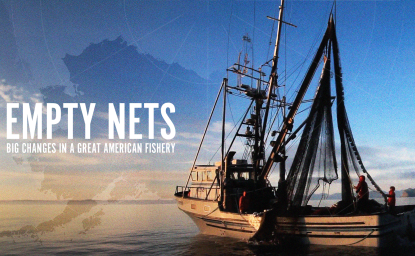
Empty Nets: Big Changes in a Great American Fishery
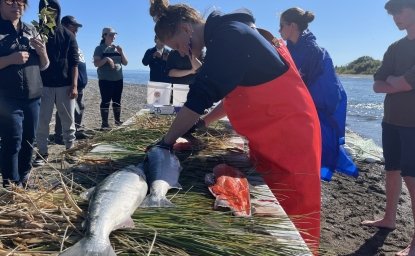
A Personal Account of Well-being and Salmon Systems
